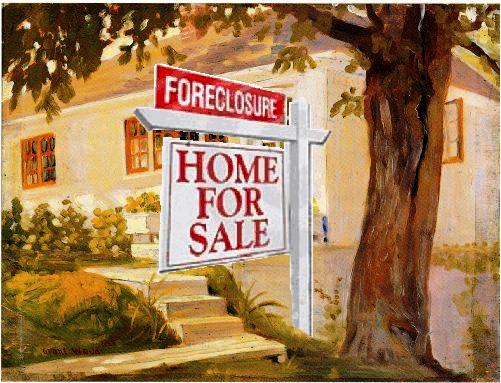December 4, 2014
Litigation over Property After the Foreclosure Law Firm Goes Out of Business
On January 31, 2012, F&M Services, L.C., conducted a foreclosure sale in Hampton, Virginia. F&M was the foreclosure trustee affiliate of the Richmond law firm Friedman & MacFadyen. Freedom Mortgage Corporation appointed F&M as successor trustee for the foreclosure of Hampton property owned by Ms. Gloria J. Harris. At the sale, Freedom Mortgage purchased the property. Subsequently, Freedom assigned the property to the U.S. Department of Veterans Affairs. Ms. Harris had a VA loan on the property.
In October 2012, Friedman & MacFadyen shut down their operations. That law firm was the target of class action litigation arising out of their debt collection and foreclosure practices, including “robo-signing” and violations of federal debt collection law. This law firm was the subject of an October 25, 2012 article on RichmondBizSense.com. In 2008, Diversified Lending Group, a company owned by Bruce Friedman made an undocumented $6 Million loan to his brother Mark Friedman’s law firm. In 2010, the appointed receiver for DLG entered into an agreement with the Friedman law firm for repayment of the $6 Million. A few months later, Bruce was arrested on investment scam charges. This same foreclosure operation was conducting sales and filing foreclosure accountings for many distressed properties in Virginia.
This did not stop litigation over property after the foreclosure law firm went out of business. Ms. Harris decided to bring a lawsuit in federal court to reverse F&M’s foreclosure sale. Rather than sue the law firm or the successor trustee, she decided to bring suit against the federal government and Freedom Mortgage. Ms. Harris’s suit does not focus on the debt collection rules or “robo-signing.” She alleged that a 30-day notice sent to her by LoanCare Servicing Center, Inc. failed to include information specifically required by the loan documents. For example, the amount demanded in the notice was over-stated by one-third. She also pleads that she made an October 2010 payment that was not credited in the notice amount.
Both the government and the mortgage company brought motions to dismiss the lawsuit. District Court Judge Henry Coke Morgan, Jr. denied their motions. The Court showed appreciation of the fact that the 30-day cure notice did not comply with the specific requirements of the loan documents. Of course, on an initial motion to dismiss, the court does not entertain proof of disputed facts. Later in the litigation the Court would consider the exact amount owed at the time of the notice and Ms. Harris ability to cure the payment default if she had received an accurate and compliant cure notice.
In the continuing fallout from the mortgage crisis beginning in late 2008, the federal government frequently finds itself as a party to complex foreclosure litigation. Previously, I discussed the tax advantages Fannie Mae and Freddie Mac enjoy in recording deeds in land records. In other states, such as Nevada, the federal government finds itself as a party to lien priority disputes between banks and community associations. The collapse of foreclosure operations such as Friedman & MacFadyen may prevent them from continuing their scrutinized practices. However, the homeowners, mortgage investors and even the government may find themselves in title litigation over the sale anyway.
Many lawsuits brought by borrowers after foreclosure sales never survive the initial motions filed by the defendant lenders. Although the October 17, 2014 opinion does not mention the law firm, I wonder if F&M’s role in Ms. Harris’ foreclosure afforded her case closer attention.
If you have interest in real property that has in the title report a trustee’s deed from an now out-of-business debt collection law firm, contact a qualified attorney in order to protect your rights.
Case Citation: Gloria J. Harris v. U.S. & Freedom Mortgage Corp., No. 4:14cv56 (E.D.Va. Oct. 17, 2014)(Morgan, J.)
photo credit (does not depict any properties discussed): Mike Licht, NotionsCapital.com via photopin cc
November 21, 2014
Wrongful Foreclosure Claims for Robo-Signing
Among the controversies of the mortgage foreclosure crisis is that of “Robo-Signing.” A homeowner may receive notice that the original mortgage lender assigned their rights under the loan documents to another financial institution. When a representative of a lender signs paperwork to foreclose on a property, how does the borrower (or anyone else) know whether that company has authority from the originating lender to foreclose?
Janis O’Connor owned real estate near the Appomattox-Buckingham Virginia State Forest. On March 31, 2011, Deutsche Bank foreclosed on her property for nonpayment. After the foreclosure sale, Ms. O’Connor filed suit, alleging that the foreclosure was not valid because the bank lacked the authority of a proper successor to the mortgage company that originated her loan. O’Connor filed suit on her own, without an attorney representing her.
Can a Borrower Sue for “Wrongful Foreclosure?”
Janis O’Connor sued her lender (and others) on a number of legal theories, including “Wrongful Foreclosure.” She alleges that unknown persons forged assignments of her mortgage in a fraudulent scheme to foreclose on her home. She writes that this robo-signing was exposed on the television program, “60 Minutes.” The bank brought a Motion to Dismiss. On October 6, 2014, the U.S. District Court for the Western District of Virginia found that Virginia law does not recognize a claim called “Wrongful Foreclosure.” Judge Moon observed that the borrower must be able to allege a claim for breach of loan documents, fraud, or some other recognized legal theory. Judge Moon expressed a concern that Ms. O’Connor inadequately alleged any causal relationship between the “robo-signing” and her losses.
On May 14, 2014, I posted an article to this blog about legal challenges to the validity of foreclosures on the grounds that the lender committed technical errors in navigating the loan default through the trustee’s auction. Courts are reluctant to set aside a completed foreclosure sale. The technical breaches must have a strong connection to the relief requested by the borrower.
“Show Me the Note”
The Code of Virginia addresses situations where the lender struggles to come up with documents evidencing its authority to proceed with the foreclosure. Va. Code § 55-59.1(B) requires the lender to submit to the trustee what’s called a Lost Note Affidavit. These provisions also require the lender to notify the borrower in writing that the promissory note is lost and that it will request the trustee to proceed after 14 days. The lender must include language notifying the borrower that if she believes that some other party is the true holder of the note, she must file a lawsuit asking the local circuit court to order the foreclosing bank to post bond or make some other protection against any conflicting claims. That Court would then decide whether a bond or some other security must be posted to protect the borrower. The mere absence of the original note cannot serve as a basis to reverse a foreclosure: “If the trustee proceeds to sale, the fact that the instrument is lost or cannot be produced shall not affect the authority of the trustee to sell or the validity of the sale.” Va. Code § 55-59.1(B). These provisions require borrowers to file suit before the foreclosure takes place in order to litigate over “show me the note” issues. Ms. O’Connor did not file suit until almost two years after the foreclosure sale. From the borrower’s perspective, she hasn’t been damaged until the foreclosure is complete. From the Court’s perspective, it is sometimes easier to evaluate matters prospectively than to undo the completed transaction.
Judge Moon remarks that this statute does not actually require the lender to provide the borrower with the lost note affidavit itself. The failure to provide this item cannot serve as the legal basis to reverse a bank foreclosure. Technical breaches of the notice requirements cannot, on their own, serve as a basis to invalidate a completed foreclosure sale.
Judge Moon dismissed Ms. O’Connor’s complaint, giving her leave to amend her claims for Breach of Contract and Fraud. Ms. O’Connor has filed an Amended Complaint, and the sufficiency of the amended lawsuit has not been decided by the court as of this blog post. Regardless as to how Ms. O’Connor’s case is resolved, it provides some important reminders about foreclosure contests:
- Timing of Foreclosure Contest: If a borrower wants to challenge the validity of a foreclosure, their best interests may be served in filing suit after the foreclosure notice is submitted and before the auction occurs. This does not guarantee that the “show me the note” allegation will provide a remedy for the borrower, but it does preserve the issue.
- Value of Title Insurance: Investors who desire to purchase a property in foreclosure without obtaining title insurance run the risk of being made a party to a lawsuit like Ms. O’Connor’s which may go on for months or years.
- Duties of Foreclosure Trustees: An attorney acting in the capacity as a foreclosure trustee under the loan documents may owe duties to parties other than the bank. I discuss this issue in a related May 21, 2014 blog post. However, he doesn’t have an attorney-client relationship with non-clients.
Lenders and borrowers are not the only parties that may have a property interest challenged by title problems from a past, present or future foreclosure. The purchaser in the foreclosure sale, the spouse of the borrower or purchaser, an investor in a real estate company, or a tenant may have rights at stake in foreclosure title litigation. If your property rights are threatened by such an action, contact a qualified attorney.
case citation: O’Connor v. Sand Canyon Corp., No. 6:14-CV-00024 (W.D. Va. Oct. 6, 2014)


